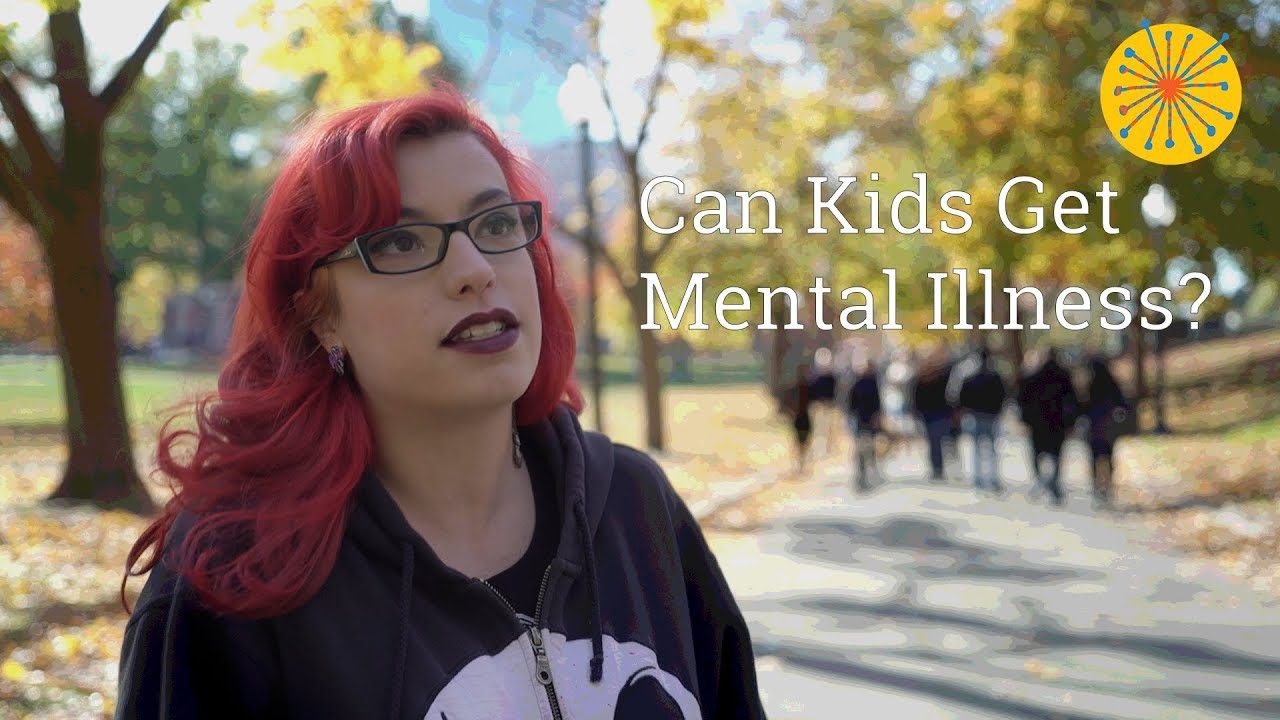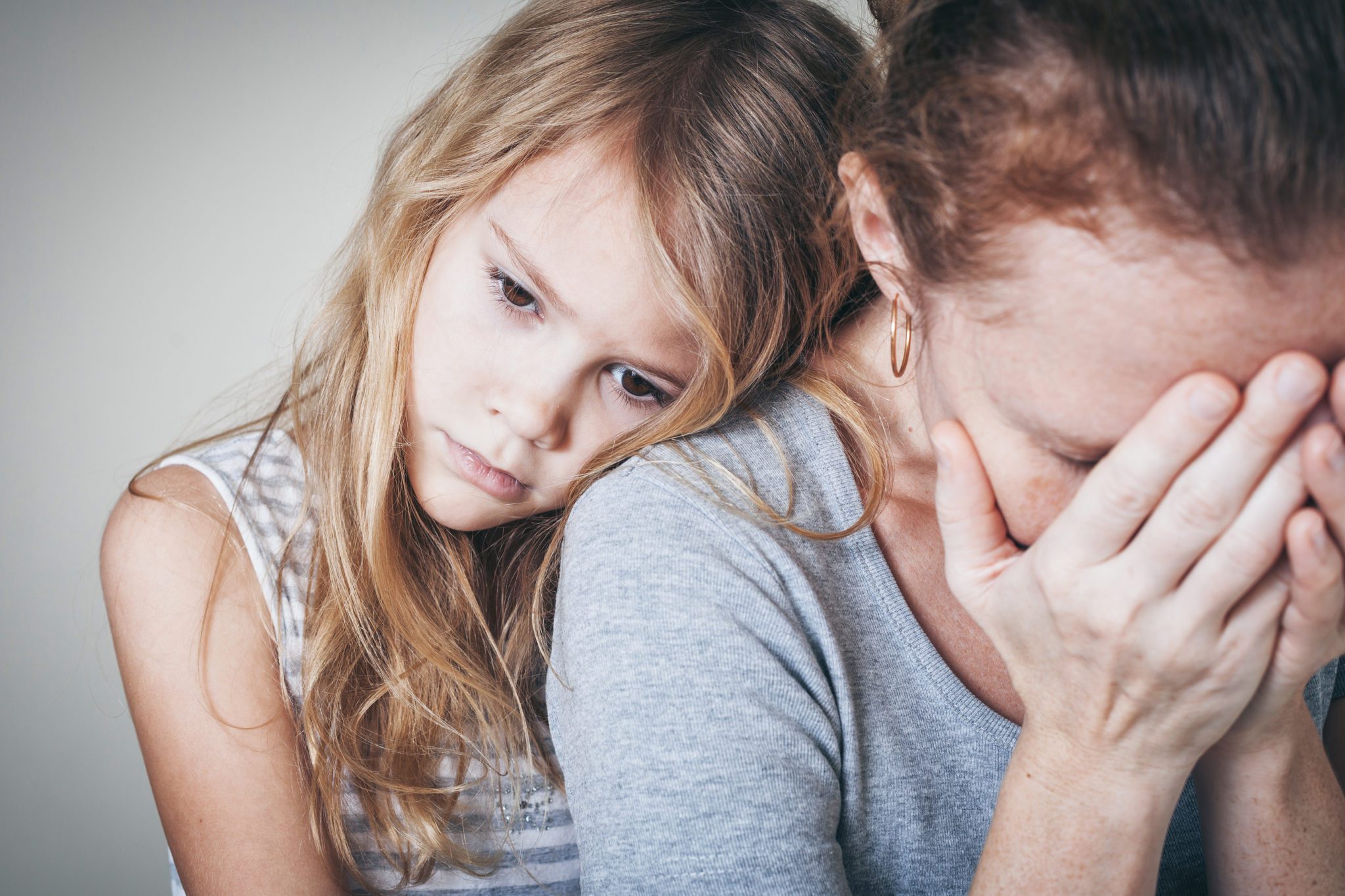Talking To Your Child About a Sibling’s Mental Illness

Posted in: Grade School, Parenting Concerns, Pre-School, Teenagers, You & Your Family
Topics: Mental Illness + Psychiatric Disorders, Relationships
How can you talk to your child about their sibling’s mental illness? Read more from Dr. Susan Swick, below.
It seemed like just another Wednesday evening. After the routine disagreements and struggles over homework, everyone sat down together to eat dinner and talk about their day. Afterwards, the twins (a boy and girl, age 9) settled in for a game of Uno while their 14-year-old sister went upstairs to finish her homework. When the twins headed upstairs an hour later to brush their teeth, they found their sister unconscious in the bathroom, an empty bottle of pills on the counter. Mom, panicked, called 911, and after what felt like an eternity, an ambulance comes. Dad stayed with the twins while Mom accompanied their oldest to the nearest emergency department.
While both parents had known about their daughter’s depression and cutting, they thought her therapy and medication were helping. They had not told the twins about any of it, and now, there was lots of fear, worry, and confusion to address.
Facing a mental illness in a child can be one of the most challenging experiences of parenthood. Managing mood and behavioral symptoms and bearing a child’s suffering are compounded by navigating a healthcare system that treats psychiatric illness so differently than other serious illnesses that affect children and teens. What’s more, attempting this amid the stigma that still exists around psychiatric illness can leave parents feeling isolated in their struggle. On the other hand, unlike fixing a broken mental health system or diminishing stigma, addressing a child’s mental illness with his or her siblings is one challenge that parents are fully equipped to handle.
It’s normal for parents to want to protect their children from a sibling’s mental illness or news that might seem scary or confusing. And, parents may feel that they ought to protect the privacy of the child managing the illness, especially (but not only) if that child is a teenager. However, a significant illness usually affects everyone in the family, and choosing not to discuss it can leave siblings feeling bewildered, confused, scared, or frustrated. Moreover, treating a mental illness as a secret may promote stigma, shame, and isolation. If parents can find a way to speak honestly about what siblings may be noticing or managing at home—while at the same time setting a tone of compassion, patience, and respect—they will create an environment that supports healing and resilience in all of their children.
Here are things to keep in mind as you approach conversations with children about a sibling who has a mental illness.
- Don’t make assumptions. Ask questions. Listen. It’s generally not wise for parents to assume that they know what their children have observed or concluded about their sibling. Instead, try sitting down with them at a time when there is not too much pressure (in other words, not during a typical morning before school), and begin by asking, “Have you noticed anything that’s been different or difficult at home lately?” If the sibling is experiencing an illness with prominent behavioral symptoms, such as agitation or mania, or if he or she has had an explosive outburst, fight, or suicide attempt, you should ask directly about the behavior that may have been observed. “Have you been thinking about what happened last night when Sarah had to go to the hospital?” or, “Did you notice when Max was so upset about having to get on the airplane?”
- Get them talking, but clarify misconceptions. I emphasize the questions because it’s important that parents be curious about what their other children have noticed, and encourage them to talk about it. This can allow younger children to share some misunderstandings or fears that can be corrected or reassured, and it can allow those older to vent feelings of anger, resentment, or frustration they might otherwise feel guilty about. To ensure that each child has the time and attention he or she needs to speak freely, it’s a good idea to talk with siblings individually—however, each child should know that this is being discussed with everyone, that the family is standing together in managing it, and that you will always keep him or her in the loop.
- You don’t have to have all the answers. In welcoming questions, parents should remember that they don’t always have to have the answers. When talking with your children, try digging a little deeper. Asking “What’s got you wondering about that?” or, “What do you think?” are not just stalling tactics (although those are allowed!)—they reinforce to us as parents that we can’t assume we know what our children are thinking of or worried about. Instead, they allow our children to set the terms of the discussion. Remember: it’s also perfectly valid to say, “I don’t know, let me speak to your dad (the therapist, the doctor, etc.) to learn more about that.”
- But be ready to offer some explanations. Once parents have invited discussion about what their children may have noticed about their sibling, they will want to be prepared to offer some age-appropriate explanations. Psychiatric illness is unique in that the outward signs can look to others like moodiness or difficult behavior; kids are used to seeing their siblings (and indeed themselves) behave badly at times, and in most families, there are predictable, consistent consequences.
So, it’s critical to explain how a psychiatric illness is different from previous behavior that stems from simply feeling sad, angry, or worried.Depression: In describing depression, for example, parents might explain that children sometimes develop illnesses that affect how they feel. Doctors don’t fully understand how these illnesses happen, but we do know that you can’t catch them like you could a cold. And, while it’s called “depression,” it’s different from just feeling sad; it’s actually more like losing almost all of your energy, interest, and motivation for things. This means that food doesn’t taste as good, games and friends aren’t as enjoyable, and jokes don’t seem as funny. While you can cheer up someone who is sad, someone who has depression needs to see a doctor to feel better. And, with the right treatment, he or she will feel better.Anxiety: Similarly, if parents wanted to describe an anxiety disorder that is making it very difficult for one child to get to school, they might introduce the idea that while anxiety or worry is a normal part of life, there are some illnesses that can make that anxiety level much higher than usual. So, for their sibling, going to school may feel like he or she is facing a charging lion! Explaining that this isn’t an excuse to get out of school, but rather, a problem that needs special treatment, is very important for children who might find it unfair that their sibling is resisting school, and receiving attention instead of being disciplined.Other psychiatric illnesses: Some illnesses can cause bizarre, disturbing, or self-destructive behaviors, be it mania, psychosis, repetitive self-injury, or even restrictive eating. With younger children, it’s important to speak in broad terms about how these behaviors are symptoms of an underlying illness that a whole team of doctors will treat. With older children, allow for time to discuss how sad or scary it can feel to watch their sibling go through something like this. Remind your children that some illnesses might affect how we breathe, and some might affect how we move; in their sibling’s case it’s the brain being affected, so his or her symptoms are coming out in his or her thoughts, feelings, and actions. It’s reasonable to acknowledge that while doctors don’t understand everything about these illnesses yet, they do know that they’re not contagious, and that they improve with treatment. This can be very helpful and reassuring for your children to hear.
- Consider your children’s ages and temperaments. In trying to help each child, parents can be guided by the individual child’s age. Younger children are likely to employ magical thinking, have self-centered explanations (“it’s my fault”), or come to scary conclusions if they are given partial or euphemistic explanations (“this is what happens when every child gets ‘sick’”). School-aged children can understand and appreciate the seriousness of what is happening, but can become focused on issues of fairness, and are also prone to anxiety. Adolescents may resent the disruptions created by a sibling’s illness, as well as how that illness ultimately affects them (even modest inconveniences). While children of all ages should be told what is going on in the same language they might come to overhear (in other words, no euphemisms), you’ll want your discussion of what “depression” or “anorexia” is to be guided by analogies and metaphors that are developmentally-appropriate. Next, consider your children’s styles. Is one a talker? He may benefit from more frequent check-ins during times that he is likely to be talking with you anyway, such as during a car ride, or while getting ready for bed. Is one a doer? If so, she will want to think of ways she can be helpful; you can help her channel her feelings into constructive action, such as letting her assist with chores, or giving her permission to do what she loves (more soccer!) Is one a feeler? A child who is focused on how this illness makes him feel, or the sadness and worry he feels for his sibling, will also need extra time with parents. He’ll need you to listen, acknowledge, and bear his strong feelings—as he, too, learns to bear them himself. Is one a philosopher? She may get stuck on how unfair this situation is, or how her sibling suddenly seems like such a different person. She will also need you to listen and talk with her as she begins to make meaning of how life can be full of both terrible heartaches and wonderful gifts.
- Find ways to help siblings still feel connected. For each of these types of children, parents may want to spend some time helping them think about how to best remain connected to their sibling. This may mean making cards or funny videos if the sibling is hospitalized. It may mean encouraging them to talk to their sibling about what’s going on—even if it’s just to say that they know he or she is going through a lot, and that they love him or her. It may also mean reassuring them that it’s OK to focus on their own work and endeavors while their sibling manages his or her illness.
- Make explicit the idea that worries should be shared. Although parents are already modeling this through open, honest conversations, they should also make explicit the principle that no member of the family should ever worry alone. This goes for worries about a sibling, a friend, a girlfriend, or him or herself. You want your children to grow up firmly believing that if something difficult is going on, they should start by talking to an adult they trust. It never hurts to remind children that you are always available to talk, and to think with them on other adults they trust whom they can turn to. Warmly affirm that their challenges and worries, as well their observations and triumphs, are still just as much your priority as the sibling who is managing an illness.
- Perfection is not the goal. Finally, it’s important for parents to remember that they shouldn’t worry about “getting it right” when they begin this discussion. Instead, let it be the start of an ongoing dialogue. If you can introduce the concept that there is a treatable illness causing your children’s sibling to think, feel, or behave a certain way, compassionately acknowledge that this is difficult for everyone, and provide reassurance that things will get better, you have already succeeded.

 Share
Share Tweet
Tweet





